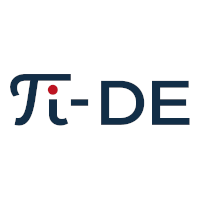C3.2 – Controlling the electronic structure of organic semiconductors via controlled packing and growth
Principle Investigator: PD Selina Olthof
During the first cohort of this research training group, we established the preparation conditions for ordered growth of small molecules on a variety of templates. We mainly focused on metal single crystals such as Ag(001) [1] or Au(001), as well as SiC which exhibits a surface termination similar to graphene. Our interest is to understand how the substrate-molecule interaction affects the growth and orientation of the layer and to study the resulting effect on the electronic structure. The latter one is studied by UV and x-ray photoelectron spectroscopy (UPS, XPS) which can detect changes in ionization energy, [2] work function, and core level binding energies.
In the second phase of this project, we will continue investigating the ordered growth of small organic molecules that are of relevance to the TIDE consortium on well-defined surfaces. Possible candidates are merocyanines synthesized by the Meerholz group or squarines from the Lützen group. Substrates, such as graphene, hBN, or dichalcogenides will be provided by the project partners, for example by the group of Prof. Meerholz. Density functional theory calculations by the Bredow group will help to explain observed changes in the density of states.
The task of the new PhD student is to evaporate the molecules and analyze them using mainly the techniques of UPS/XPS and low energy electron diffraction (LEED). This way, changes in packing and electronic structure can be probed.
References
[1] A. Kny, M. Reimer, N. Al-Shamery, R. Tomar, Th. Bredow, S. Olthof, D. Hertel, K. Meerholz and M. Sokolowski, Chiral self-organized single 2D-layers of tetramers from a functional donor–acceptor molecule by the surface template effect, Nanoscale,15, 10319, 2023.
[2] S. Duhm, G. Heimel, I. Salzmann, H. Glowatzki, R. L. Johnson, A. Vollmer, J. Rabe, N. Koch, Orientation-Dependent Ionization Energies and Interface Dipoles in Ordered Molecular Assemblies, Nat. Mater. 2008, 7, 326
The ideal candidate has previous experience with ultra high vacuum systems, which are needed here for the preparation and experimental investigation. Also experience with XPS/UPS or LEED are considered beneficial.
